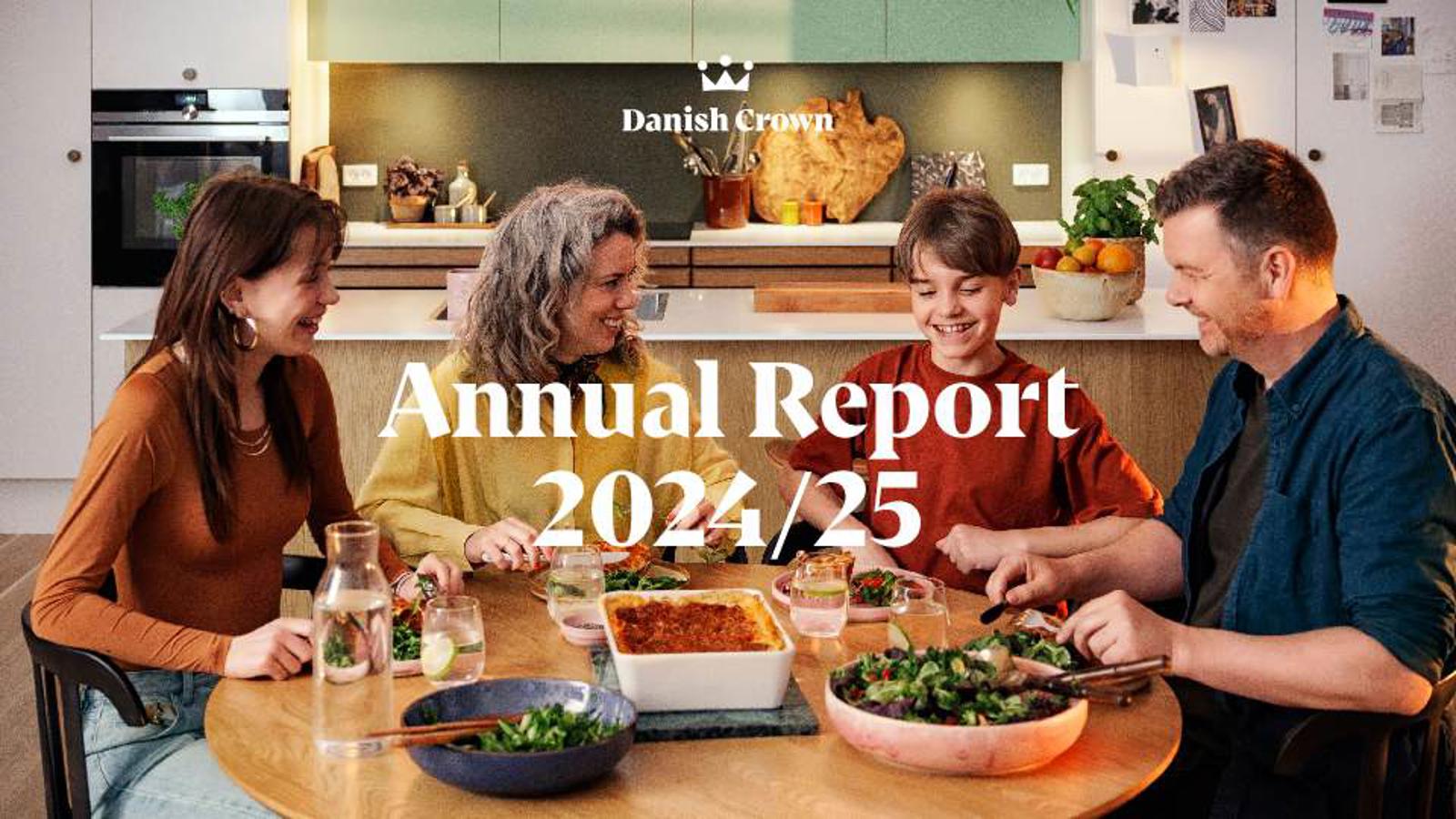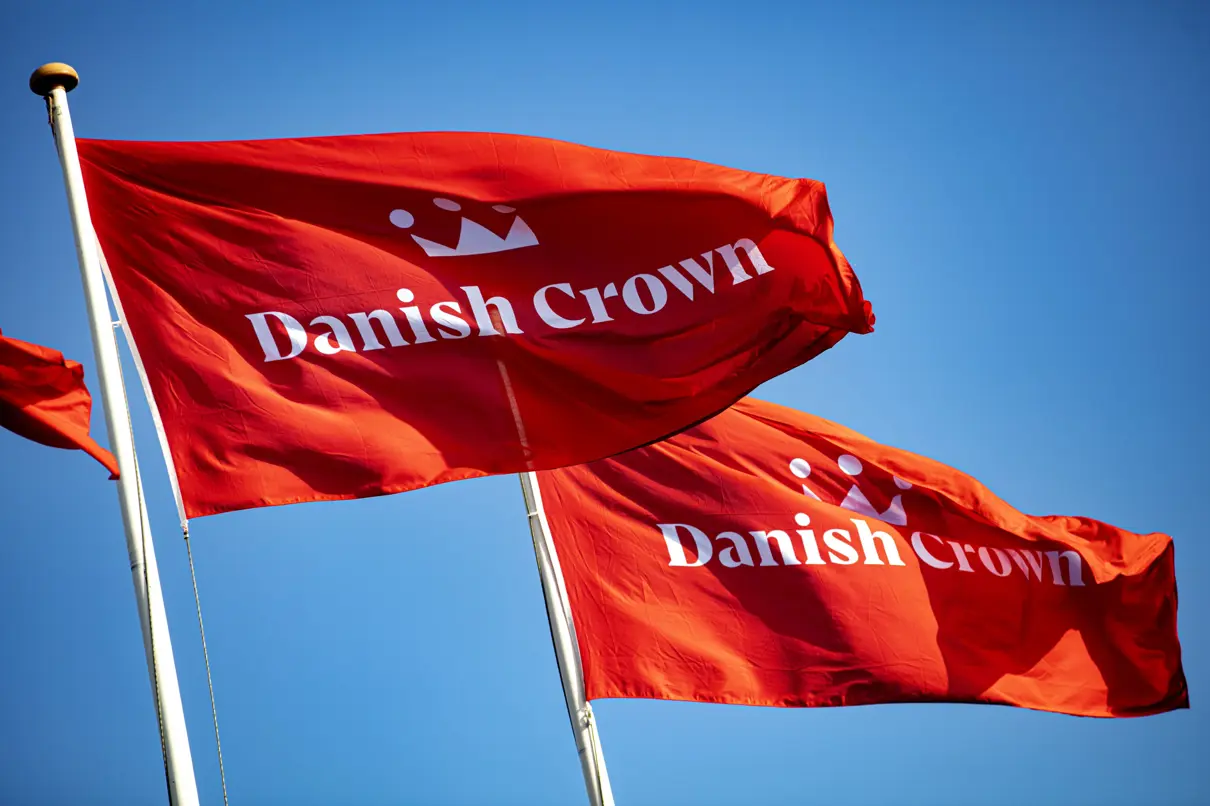In the 2024/25 financial year, Danish Crown carried out an extensive cost-saving plan to align expenses with the future business scope. A total of 500 white-collar-employees have left the company, the loss-making factory in China has been sold, a plant in Germany packing fresh meat for German retail has been closed, and turnaround initiatives have been launched for key German and UK operations.
Furthermore, Danish Crown has succeeded in reversing the decline in pigs delivered to the group’s Danish abattoirs, so overall, leaving the group stronger at the close of the year.
Niels Ulrich Duedahl, Group CEO, says:
"We are in a much better place than we were a year ago, but we still have a lot of work ahead before we can put the crisis definitively behind us. We have managed to create a better balance between payments to our cooperative owners, our operating costs, and capacity utilisation at the abattoirs, but it is important that we strengthen our earnings further so that we can pay a competitive price to the owners as well as further develop Danish Crown."
Higher ongoing payment
A combination of increased competitiveness and a change in the approach to the balance between the ongoing payment (the quotation) for the owner’s deliveries of livestock and the distribution of the annual profit - the so-called supplementary payment - meant that Danish Crown significantly raised the quotation in the spring. Over a few weeks, it increased by DKK 2.80, of which DKK 1.60 came from the change in approach to the balance between quotation and supplementary payment, and DKK 1.20 came from improved competitiveness. At the same time, the target for the supplementary payment was lowered to DKK 0.70. This manoeuvre reduced operating profit (EBIT), and, accordingly, the net result.
Revenue for the 2024/25 financial year was DKK 65.4 billion compared to DKK 67.8 billion the previous year. When adjusted for an overall 10 per cent decline in owners’ livestock deliveries, this represents an increase in revenue per kilo delivered by owners.
Operating profit (EBIT) was DKK 1.63 billion compared to DKK 2.4 billion in 2023/24. The decline of approximately DKK 800 million is primarily due to the changed approach to the supplementary payment, which has paid out a total of DKK 589 million extra to the owners since May.
Net profit lands at DKK 788 million, but adjusted for the increased quotation, the result would have been DKK 1,247 million. This corresponds to an improvement of 19.7 per cent compared to last year, reflecting improved competitiveness. Measured against the German quotation, the gap over the entire year has been reduced from DKK 2.52 to DKK 1.32 per kilo.
Niels Ulrich Duedahl says:
"The improved competitiveness resulting from multiple initiatives, as well as the decision to change our approach to the supplementary payment and raise the quotation, gave us momentum. At any time, we need to match our Danish competitors’ payments at least, and we must succeed in reducing the gap to the German quotation even further. The latter is crucial to keep the number of pigs and cattle for slaughtering in Denmark at a sufficient level because high utilisation of our abattoirs will fuel our ability to create value for our owners," says Niels Ulrich Duedahl.
A strong year for beef
Throughout the year, there has been a strong demand for beef in Europe. Therefore, the Danish payment for cattle has on average increased by 48 per cent during the year. However, the Danish Crown cattle abattoirs in Germany, and Scan-Hide, which processes cattle hides into raw leather, have not delivered satisfactory earnings, prompting several corrective initiatives.
The group’s subsidiaries overall performed largely as expected. There is progress in the Polish company Sokolów, KLS in Sweden and ESS-FOOD deliver stable results, while DAT-Schaub’s earnings are not satisfactory. This is due to a weak global market for heparin, caused by large inventories in the healthcare sector and among buyers of raw heparin.
The continuous focus on value creation resulted in a contract with McDonald’s. From summer 2026, Danish Crown will supply burger patties to all McDonald’s restaurants in Denmark, Sweden, and Finland.
Niels Ulrich Duedahl says:
“The agreement with McDonald’s proves that with our integrated value chain and focus on sustainability, Danish Crown can create value for major international companies. In the upcoming years, we will have a continued focus on developing our existing partnerships and work purposefully to establish new. We know the opportunities exist, as for example the QSR segment (Quick Service Restaurants) continues to grow.”
Business growth
Naturally, the revised approach to the supplementary payment—reducing our objective from DKK 1.10 to DKK 0.70 per kilo— impacts Danish Crown’s balance sheet and key financial ratios. Net interest-bearing debt has increased by DKK 390 million measured on the last day of the year. At the same time, the average net interest-bearing debt over the entire year has been DKK 800 million lower than the previous year. Equity has been reduced because the owners were paid DKK 330 million out of free reserves after last year’s accounts, as the expected supplementary payment in 2023/24 could not be covered by the net result. In addition, DKK 180 million was paid out from the owner accounts.
Anders Aakær Jensen, Group CFO, says:
“The change in our capital structure and financial gearing is primarily driven by the revised approach to the supplementary payment. In the coming year, our clear objective is to deliver business growth. While this will require increased working capital, we expect to further reduce net interest-bearing debt through lower working capital levels and improved earnings. This will strengthen both our equity position and liquidity, enabling us to reduce interest costs.”
New leadership for the transformation
Throughout the year, the group management team has changed and expanded. In the spring, it was decided to divide the core business into three separate business units: Danish Crown Industry, Danish Crown Foods, and Danish Crown UK. Together with the executive board, the director of Danish Crown Beef, and the directors of the four subsidiaries, the leaders of the three business areas now form the group management team.
This is the group that will drive the transformation of Danish Crown, and there are clear objectives for the financial year 2025/26:
- Efficiency programs have been launched within procurement and logistics to reduce costs by at least DKK 100 million.
- The four subsidiaries must collectively increase their earnings by at least DKK 100 million. Sokolów must continue its progress, KLS must defend and develop its market position in Sweden. DAT-Schaub must regain some of the lost earnings through its strong position in the casing market, while ESS-FOOD, in a very volatile market, will focus on improving earnings.
- There is still potential for significant operational improvement at the German abattoir in Essen and the bacon factory in Rochdale, UK. The aim is to achieve a total improvement of DKK 150 million compared to the 2024/25 financial year.
- Slaughters in Denmark are expected to increase from 8.8 million pigs in the 2024/25 financial year to somewhere between 9.0 and 9.3 million pigs in 2025/26. This will significantly improve capacity utilisation and production costs in Danish Crown Industry.
Niels Ulrich Duedahl says:
“We have taken the necessary steps to improve competitiveness and now have a stronger base among our owners. The transformation must now be carried out. We expect this will take us two years, and perseverance will be the key word. It will require continued strong efforts from employees, who have already put in solid work to reverse the trend. Based on stable deliveries of pigs and cattle from our cooperative owners, we will strive to create renewed revenue growth, increase productivity across the group, and thereby boost our competitiveness by an additional DKK 1 billion.”

